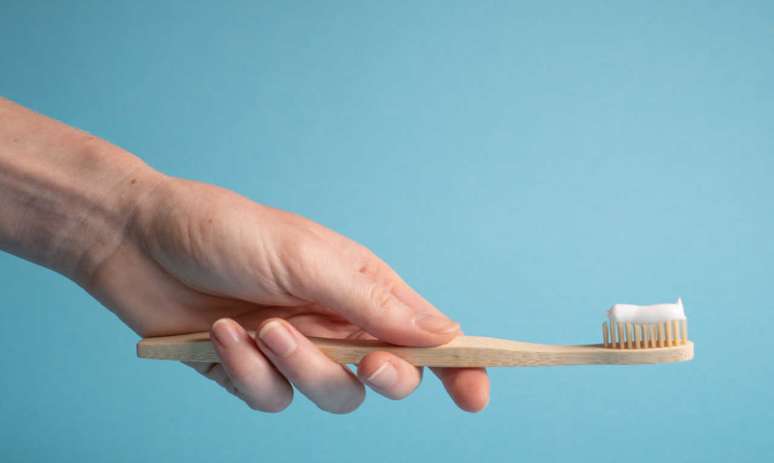The expert warns that poorly cleaned or worn toothbrushes can affect the health of the whole body
A toothbrush is an indispensable element for maintaining oral health. What few people know is that if you don’t have the right conditions, your toothbrush can transmit and cause a number of diseases that affect your health. Also, it’s worth noting that the oral cavity has thousands of bacteria that can multiply up to 250 times in 24 hours if not brushed.
html[data-range=”xlarge”] figure image img.img-3c54c10158e81b5f9e9a5f6989f473bbz9cpi7ly { width: 774px; height: 463px; }HTML[data-range=”large”] figure figure img.img-3c54c10158e81b5f9e9a5f6989f473bbz9cpi7ly { width: 548px; height: 328px; }HTML[data-range=”small”] image figure img.img-3c54c10158e81b5f9e9a5f6989f473bbz9cpi7ly, html[data-range=”medium”] figure image img.img-3c54c10158e81b5f9e9a5f6989f473bbz9cpi7ly { width: 564px; height: 337px; }
Thus, a toothbrush without proper care can threaten the health of the entire body without the individual suspecting the cause of the contamination, says Dr. Mauro Macedo, member of the Brazilian Academy of Dentistry (AcBO). According to the expert, toothbrushes that are not cleaned properly become a niche for bacteria that can transmit, for example, pneumonia and even hepatitis.
A drop in the patient’s immunity, along with a mouth sore or simple gingivitis is enough for the risk to increase. This is because the pathogens present in poorly maintained toothbrushes can reach the bloodstream and settle in any organ of the human body, including noble organs such as the heart, causing serious damage to health.
Habits that help preserve the toothbrush
Among the essential care for the toothbrush to avoid contamination and disease, Dr. Mauro mentions 7 healthy habits and 7 other habits that can ruin the toothbrush. Watch:
1) Wash your hands well before picking up the toothbrush, as a dirty hand can carry germs and bacteria on the toothbrush;
2) Wash well after use under running water to avoid residues of paste or dirt between the bristles;
3) After washing, tap the brush in the sink to remove excess water;
4) Spray the bristles and the head, without exceeding, with chlorhexidine solution (bactericidal solution) to eliminate opportunistic bacteria;
5) It is mandatory to change the brush every 2 months at the most – this prevents the accumulation and proliferation of microorganisms;
6) Immediately discard the brush if the bristles are slightly deformed, discolored or at the base. Swap with another brush and always soft;
7) Store brushes in a well-ventilated place away from the toilet.
Habits that can contaminate your toothbrush
1) Dry on towels or paper;
2) Use non-specific disinfectants to clean the toothbrush;
3) Keep the brush together with other brushes;
4) Use the brush in other regions of the body that are not intraoral;
5) Sharing the use of toothbrushes with other family members. This is because habit can transmit periodontitis, gingivitis, tooth decay, diarrhea, halitosis, flu, pharyngitis, covid-19, ear infections, meningitis, pneumonia and even heart disease;
6) Use cases and cases, as the brushes retain moisture in the bristles, favoring the proliferation of fungi and bacteria present;
7) Leave the toothbrush exposed in the bathroom, as insects and aerosols from the toilet, during the discharge, can contaminate it, including faecal coliforms.
Source: Terra
Ben Stock is a lifestyle journalist and author at Gossipify. He writes about topics such as health, wellness, travel, food and home decor. He provides practical advice and inspiration to improve well-being, keeps readers up to date with latest lifestyle news and trends, known for his engaging writing style, in-depth analysis and unique perspectives.









